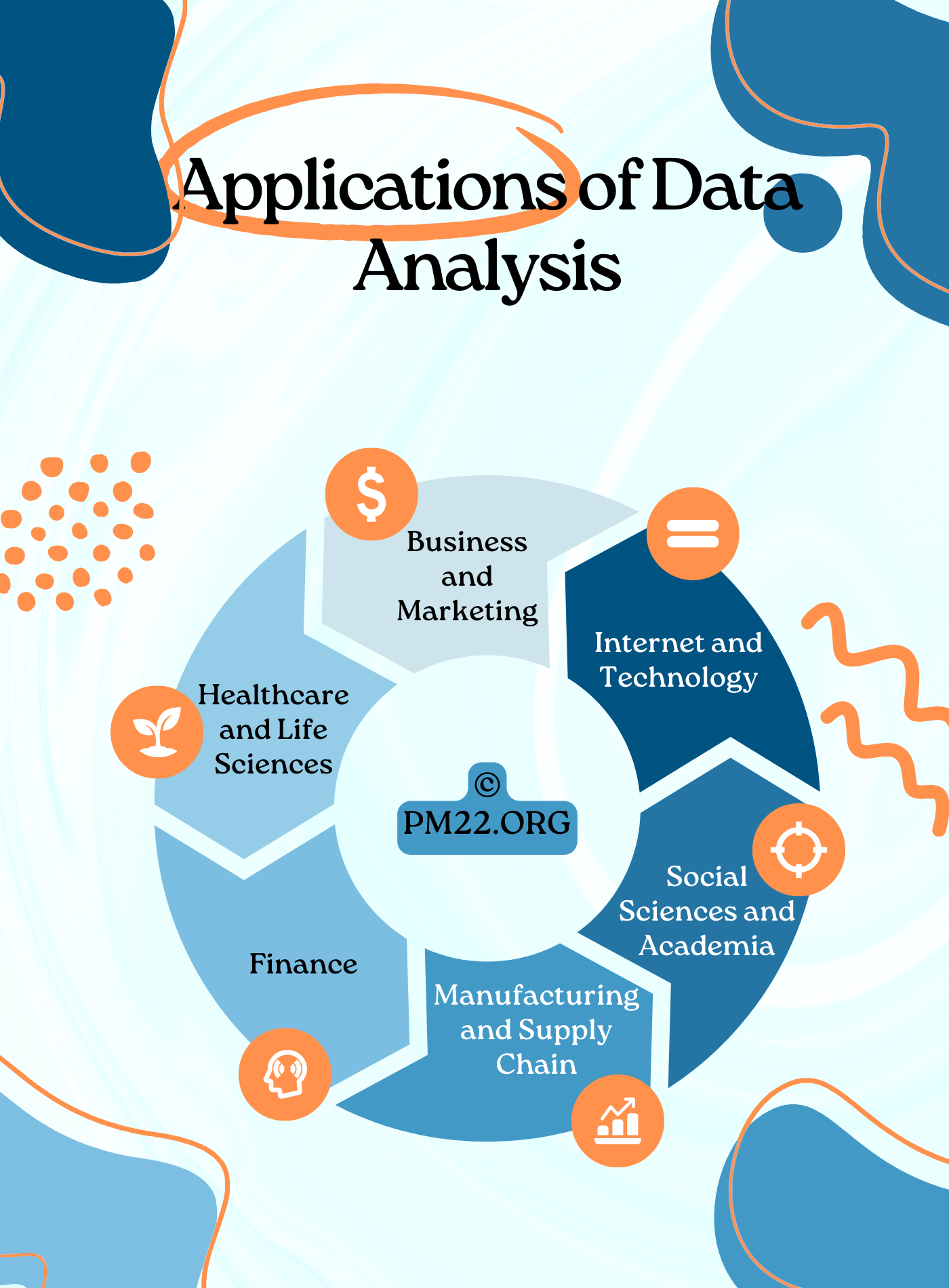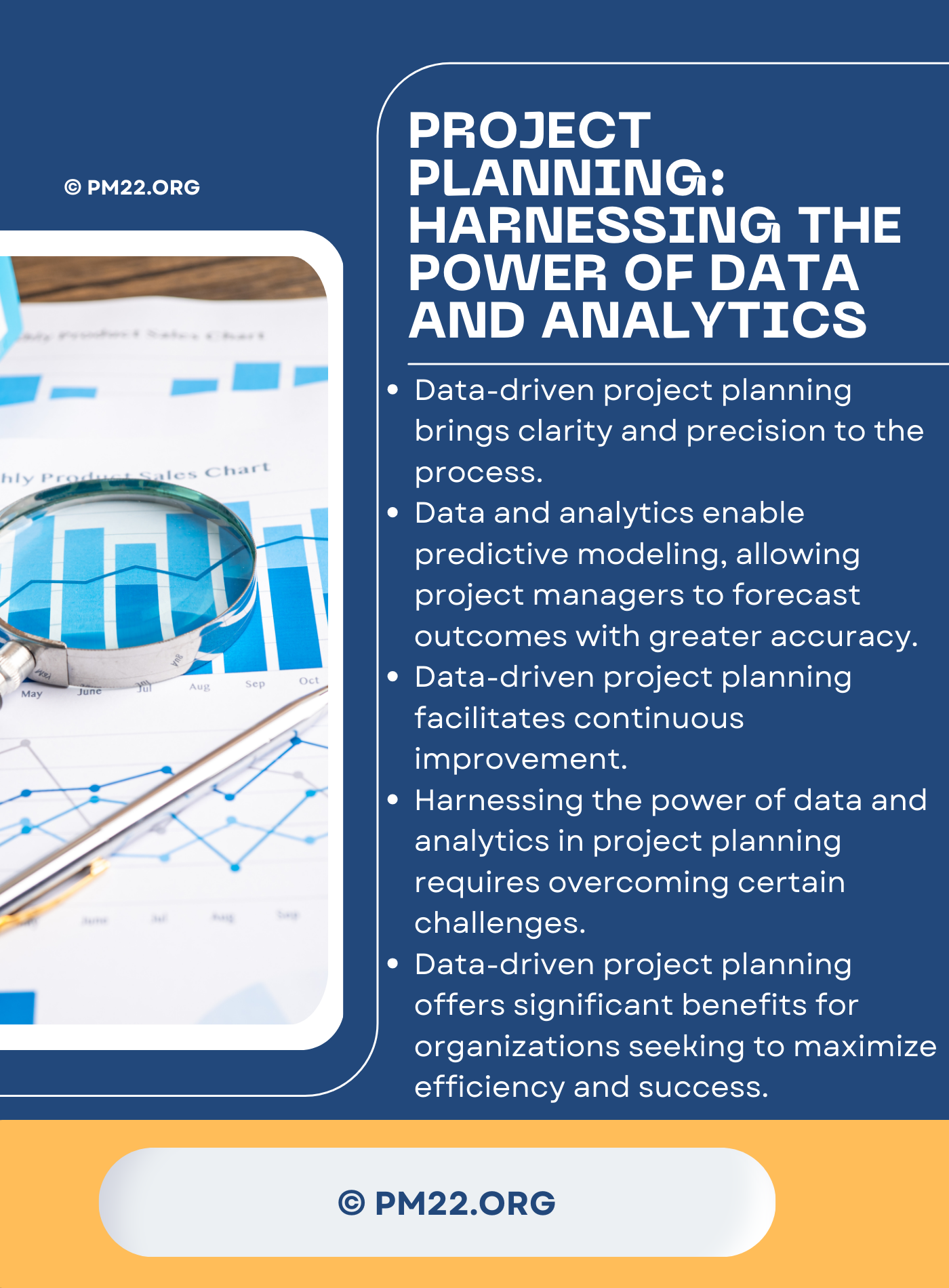 In the realm of project management, the difference between success and failure often lies in the effectiveness of planning. In today’s digital age, where data and analytics reign supreme, harnessing their power has become imperative for organizations aiming to thrive in competitive landscapes. Project planning, once reliant on intuition and experience alone, now benefits immensely from the insights derived from data-driven approaches. Let’s delve into how integrating data and analytics transforms project planning, maximizing efficiency and success.
In the realm of project management, the difference between success and failure often lies in the effectiveness of planning. In today’s digital age, where data and analytics reign supreme, harnessing their power has become imperative for organizations aiming to thrive in competitive landscapes. Project planning, once reliant on intuition and experience alone, now benefits immensely from the insights derived from data-driven approaches. Let’s delve into how integrating data and analytics transforms project planning, maximizing efficiency and success.
Firstly, data-driven project planning brings clarity and precision to the process. By analyzing historical project data, organizations gain valuable insights into past successes and failures. This information enables project managers to identify patterns, anticipate potential roadblocks, and adjust their strategies accordingly. For instance, analyzing data on resource allocation and task dependencies can help in optimizing schedules, ensuring that projects stay on track and within budget.
Moreover, data and analytics enable predictive modeling, allowing project managers to forecast outcomes with greater accuracy. Advanced algorithms can analyze various project parameters and predict potential bottlenecks or delays before they occur. Armed with this foresight, project teams can proactively mitigate risks and allocate resources more efficiently, thereby improving project timelines and outcomes.
CLICK HERE TO DOWNLOAD 300+ PROJECT MANAGEMENT TEMPLATES & DOCUMENTS IN EXCEL
Furthermore, data-driven project planning facilitates continuous improvement. By collecting real-time data throughout the project lifecycle, organizations can monitor progress, identify areas for optimization, and make data-driven decisions on the fly. For example, leveraging analytics tools to track Key Performance Indicators (KPIs) enables project managers to assess performance against benchmarks and implement adjustments as needed to ensure project success.

In addition to enhancing efficiency, data-driven project planning fosters collaboration and transparency within project teams. By centralizing project data and making it accessible to all stakeholders, organizations promote collaboration and alignment towards common goals. Moreover, transparent reporting based on data-driven insights fosters trust among team members and stakeholders, leading to smoother communication and more effective decision-making processes.

However, harnessing the power of data and analytics in project planning requires overcoming certain challenges. One such challenge is ensuring data quality and integrity. Poor-quality data can lead to inaccurate insights and flawed decision-making, undermining the effectiveness of data-driven approaches. To address this challenge, organizations must prioritize data governance and invest in data management practices to ensure data accuracy, consistency, and reliability.
CLICK HERE TO DOWNLOAD 300+ PROJECT MANAGEMENT TEMPLATES & DOCUMENTS IN EXCE
Another challenge is overcoming organizational resistance to change. Transitioning to a data-driven approach requires a cultural shift within organizations, as it often involves adopting new tools, processes, and mindsets. To overcome resistance, organizations must invest in change management initiatives, providing training and support to employees and fostering a culture that values data-driven decision-making.
In conclusion, data-driven project planning offers significant benefits for organizations seeking to maximize efficiency and success. By leveraging data and analytics, organizations can gain valuable insights, improve decision-making, and enhance collaboration within project teams. However, realizing these benefits requires overcoming challenges related to data quality and organizational resistance to change. Ultimately, organizations that embrace data-driven project planning stand to gain a competitive advantage in today’s dynamic business environment.
